Visual discrimination skills Normal Alphabet Worksheets
5 filtered results
-
From - To
Enhance your child's learning experience with our Visual Discrimination Skills Normal Alphabet Worksheets! Designed for early learners, these worksheets focus on improving children's ability to recognize and differentiate between various letters and words. Through engaging activities, kids will strengthen their visual perception while building a solid foundation in literacy. Each worksheet features fun illustrations and challenges that make learning enjoyable, ensuring that children become confident and proficient in identifying letters. Perfect for classrooms or home learning, these printable resources help prepare young minds for success in reading and writing. Explore our collection today and foster essential skills in a fun way!
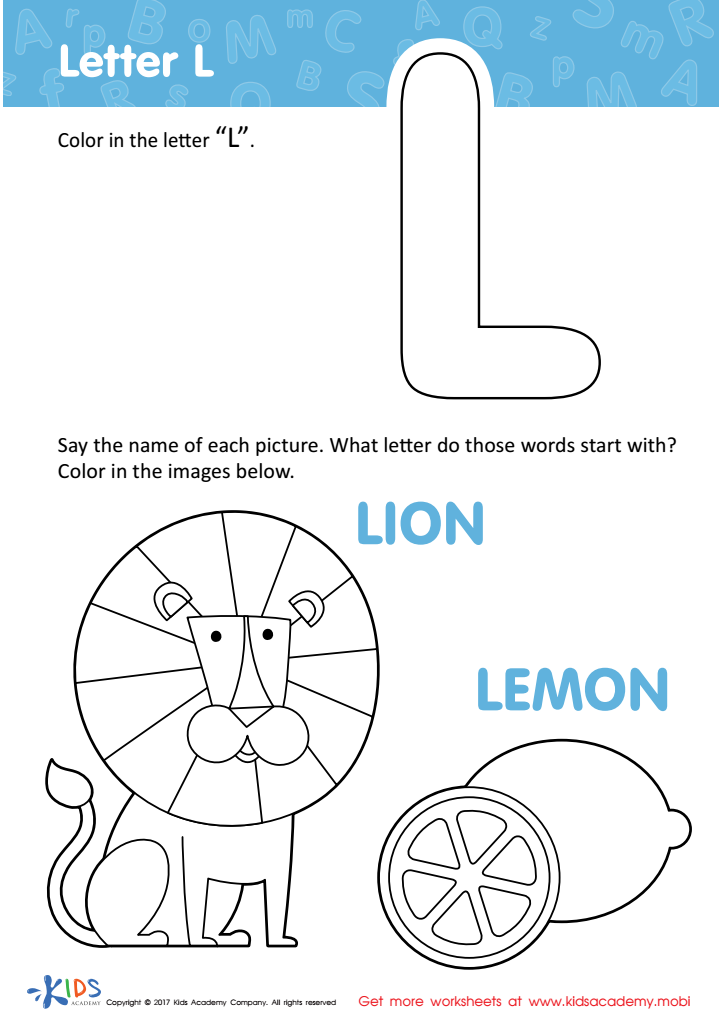

Letter L Coloring Sheet
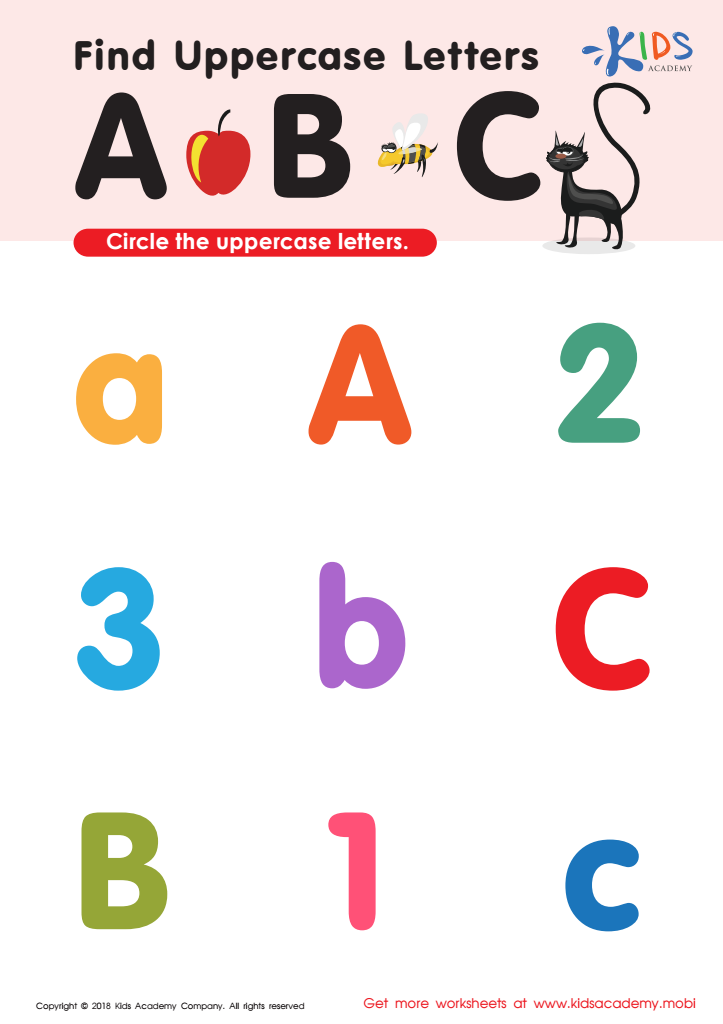

Find Uppercase Letters A, B, and C Worksheet
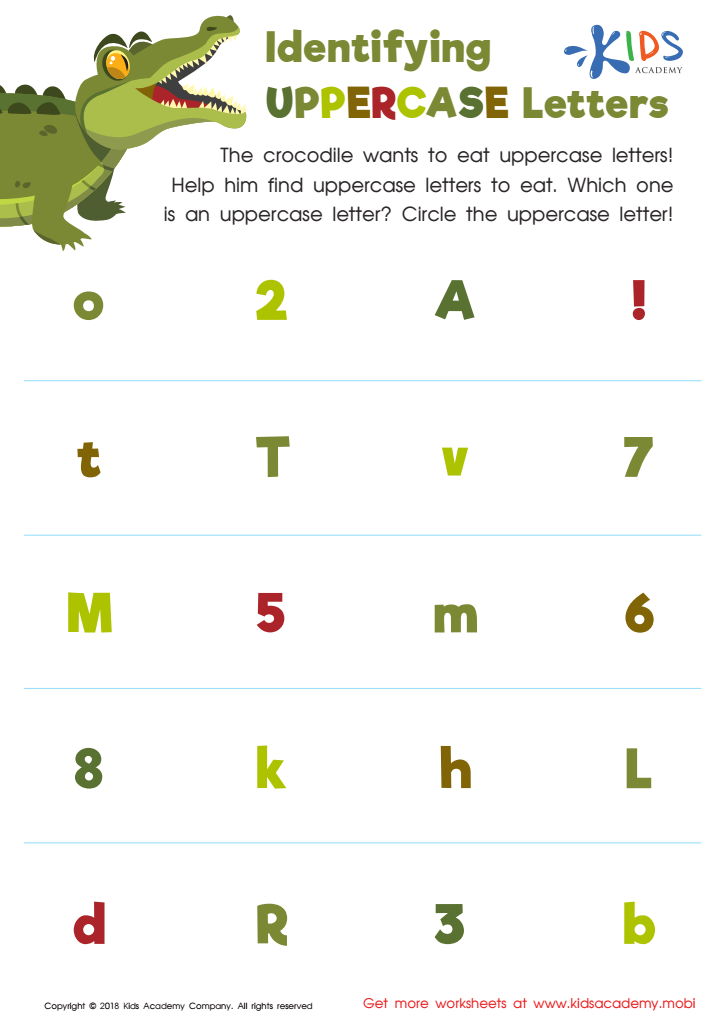

Identifying Uppercase Letters Worksheet
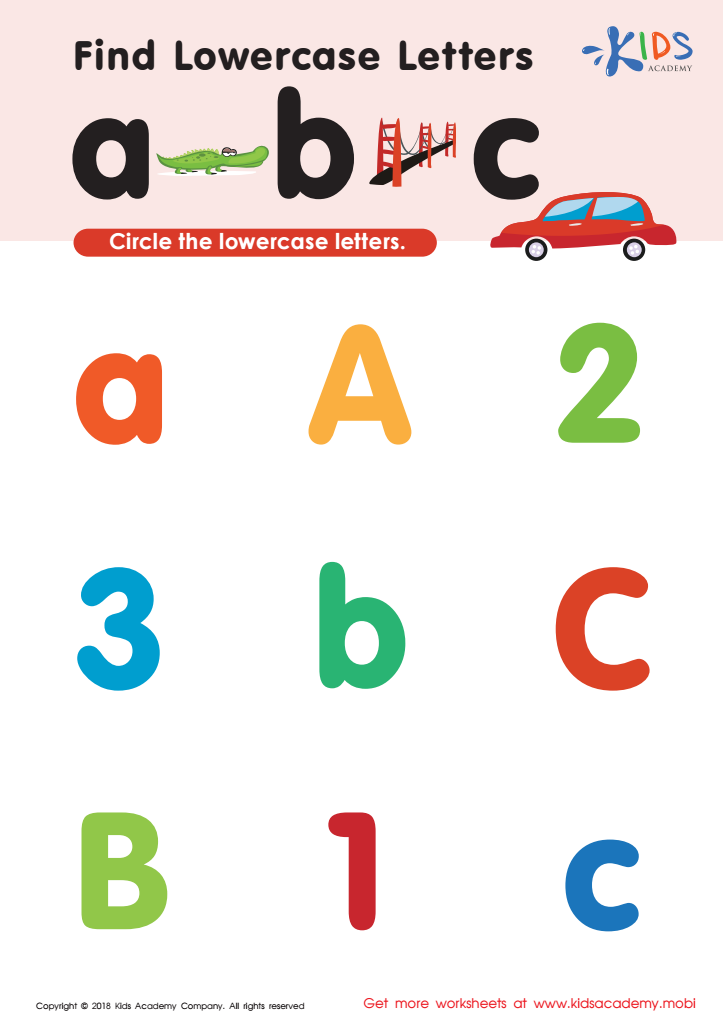

Find lowercase letters a b c Worksheet
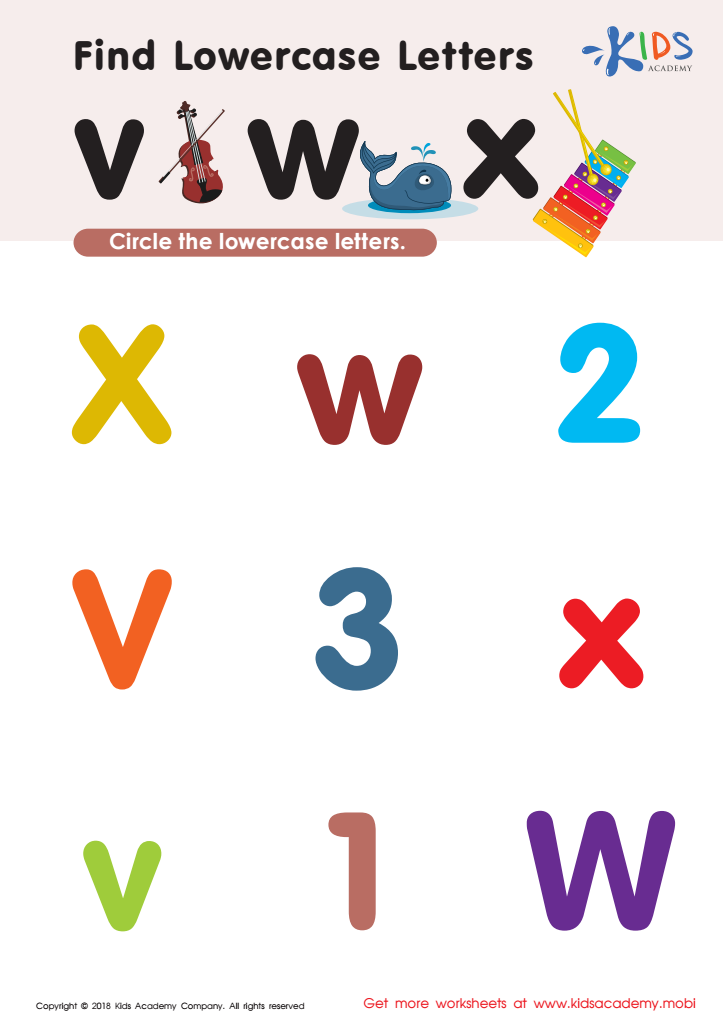

Find Lowercase Letters v w x Worksheet
Visual discrimination skills are essential for young learners, significantly impacting their academic development, particularly in reading and writing. These skills enable children to differentiate between similar shapes, letters, and patterns, which is vital when they begin to identify and manipulate the alphabet. For instance, recognizing subtle differences between letters like "b" and "d" or "p" and "q" can prevent future difficulties in reading.
Parents and teachers should care about fostering visual discrimination skills because these foundational abilities influence overall literacy and learning success. When children have strong visual discrimination skills, they are more equipped to recognize words, understand letters in context, and develop phonemic awareness, which are all crucial for reading fluency.
Moreover, promoting these skills in early education can enhance a child's confidence and motivation. Children who can successfully identify and differentiate letters and symbols are more likely to engage positively with literacy activities. Conversely, struggles in this area may lead to frustration and a reluctance to participate in learning, potentially causing long-term academic challenges.
Incorporating fun activities that strengthen visual discrimination, such as matching games, drawing, and puzzles, can support children’s development, making reading an enjoyable and fulfilling experience for them.

 Assign to My Students
Assign to My Students















